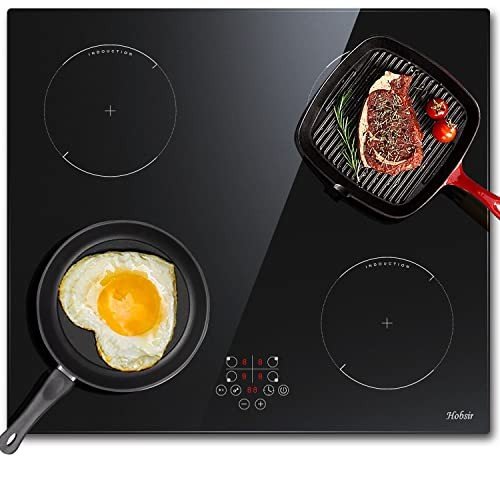Understanding Cookers and Hobs: A Comprehensive Guide
Cooking is an integral element of life, and the development of kitchen home appliances plays a substantial function in how effectively and successfully individuals prepare their meals. Among these appliances, cookers and hobs are two of the most essential instruments discovered in modern-day cooking areas. This post digs into the distinctions between cookers and hobs, analyzes their numerous types, and offers insights on their features, upkeep, and choice procedure.
What are Cookers and Hobs?
Cookers
Cookers are comprehensive kitchen home appliances designed for cooking jobs, generally combining an oven and a hob. They can be found in different setups and types, accommodating varied cooking needs and preferences.
Hobs
Hobs, on the other hand, are more concentrated devices mostly used for boiling, frying, and other stovetop cooking approaches. Hobs can be standalone systems or an integrated part of bigger cookers.
| Feature | Cookers | Hobs |
|---|---|---|
| Function | Integrates oven and hob | Stovetop cooking only |
| Design | All-in-one system | Different system or integrated |
| Types | Electric, gas, double fuel | Gas, electric, induction |
| Installation | Enables more flexibility | Built into the counter top |
| Price Range | Normally higher | Varies commonly |
Types of Cookers
1. Electric Cookers
Electric cookers use electrical energy as their main power source. They often feature an integrated oven and numerous cooking zones on the hob.
Advantages:
- Even heat circulation
- Offered in numerous styles (e.g., freestanding, built-in)
2. Gas Cookers
Gas cookers run on gas or liquefied petroleum gas (LPG). They offer immediate heat control, making them a favorite amongst expert chefs.
Advantages:
- Instant heat changes
- More inexpensive functional costs
3. Double Fuel Cookers
Double fuel cookers integrate the heat of gas with the performance of electric ovens. This setup permits the best of both worlds, offering control and consistent results.
Benefits:
- Flexible cooking options
- Accurate control over stovetop cooking and baking
4. Range Cookers
Range cookers are larger and more effective than standard cookers, featuring multiple ovens and hobs for extensive cooking tasks.
Advantages:
- Ideal for large households or cooking for occasions
- Uses numerous cooking choices in one appliance
Types of Hobs
1. Gas Hobs
Gas hobs are preferred for their fast heating and strong flame, making them exceptional for burning and stir-frying.
Benefits:
- Instant heat and control
- Suitable with any kind of cookware
2. Electric Hobs
Electric hobs warm up utilizing electric coils or glass-ceramic surface areas, supplying a modern appearance and efficient cooking.
Benefits:
- Easier to clean
- Uniform surface area ideal for numerous pots and pans
3. Induction Hobs
Induction hobs use electromagnetic fields to heat pots and pans directly, using quick and energy-efficient cooking.
Advantages:
- Safe (cool surface area after eliminating pots and pans)
- Energy-efficient and exact
4. Strong Plate Hobs
These traditional hobs utilize strong electric plates that warm up gradually.
Advantages:
- Rugged and resilient
- Typically more budget-friendly than other types
Secret Features to Consider
When choosing a cooker or hob, numerous functions need to be taken into account:
- Size and Space: Consider the size of your kitchen and the amount of workspace needed.
- Cooking Style: Choose based upon preference-- gas for control, induction for performance, and so on.
- Performance Ratings: Look for energy-efficient models to lower utility bills.
- Alleviate of Cleaning: Smooth surface areas help with simple maintenance.
- Security Features: Automatic shutoff, flame failure devices, and kid locks boost safety.
Upkeep Tips
Keeping cookers and hobs lengthens their life-span and makes sure safe operations.
- Routine Cleaning: Wipe down surface areas after usage to avoid buildup.
- Check Seals: Check oven door seals frequently for wear and tear to preserve performance.
- Service Regularly: Schedule professional maintenance a minimum of when a year.
- Appropriate Cookware: Use cookware proper for your hob type to prevent damage.
Regularly Asked Questions (FAQs)
What is the difference between a cooker and a hob?
A cooker combines an oven and hob in one unit, while a hob is generally a standalone device for stovetop cooking.
Do I need a professional to set up a gas cooker or hob?
Yes, professional setup is suggested for gas appliances to make sure security and compliance with regional regulations.
Can I utilize any kind of pots and pans on induction hobs?
Induction hobs need magnetic cookware. Ovens & Hobs -steel or cast iron pots work best. Non-magnetic materials will not warm up.
Are electric cookers more energy-efficient than gas cookers?
While both have advantages, electric cookers tend to be more energy-efficient total, particularly with modern-day, high-efficiency models.
How often should I clean my cooker or hob?
It is best to clean them after each usage and perform a comprehensive cleansing weekly to avoid accumulation and residue.
Comprehending the distinctions, functions, types, and maintenance ideas for cookers and hobs is vital for any home cook. By picking the right home appliance matched to their culinary requirements, users can enhance their cooking experience, making meal preparation an efficient and enjoyable task. Whether going with the instant control of gas or the sleek effectiveness of induction, selecting the proper cooker or hob can result in an especially boosted kitchen experience.

